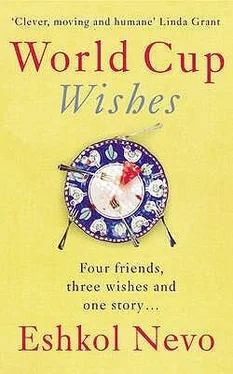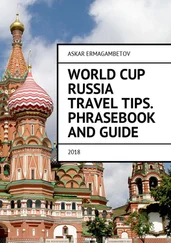From ‘Metamorphoses: Great Minds who Changed their Mind’, a shelved philosophy thesis by Yuval Freed
Only after the death of Plato, his spiritual father, did Aristotle leave the Academy in Athens and move to Asia Minor. And only there (with the confidence that distance brings?) did he dare for the first time to refute the theory of his teacher and master, the theory he had been raised on for twenty years, from the age of seventeen. Plato had erred all along, Aristotle claims. There is no point in talking about abstract ideas we do not have the ability to see or feel. All our attempts to discuss anything beyond our experience are destined to fail. Therefore, philosophy must limit itself to a study of the space accessible to our senses, which, in and of itself, is a broad subject that calls for much deliberation.
‘So farewell to Platonic ideas, for they have no more meaning than singing la la la,’ Aristotle writes. And that sentence is so coarse and resolute that it immediately raises the question: when did that extreme turnabout in his ideas occur? Had the doubt germinated in him during his studies at the Academy, and did he keep silent in order not to disrespect his spiritual father, or was it Plato’s death and Aristotle’s liberation from his great shadow that made the change in his thinking possible? Were there intermediate stages on the road to the great defection, or did Aristotle awaken one morning in his home in the port city of Assos, look at the actual fishing boats and tangible fishing nets and suddenly understand everything?
And another question, to which, of course, there was and never will be a single answer: what would have happened if Plato had lived longer?
Would Aristotle have stood up one evening in the presence of all the students and confronted his spiritual father face to face?
MY FATHER SHOWED great respect for the writers who came to his printing house in the lower city.
There weren’t many of them. Most tried their luck in the large Tel Aviv publishing houses, and when they were rejected, gave up on the dream. Only a few were persistent enough or desperate enough to self-publish their books and, except for one, none ever came back to my father to publish their second book. Anyway, they had only one story to tell — the story of their lives — and the indifference with which that story was received by readers weakened their resolve.
Not even anyone in my family read the book, they would complain to him, not even my children! And he would console them, placate them, put a hand on their shoulder and explain that books tend to make their way slowly, and he’s even heard of some of our own writers, from Haifa, who received emotional letters from readers in distant lands — even Scandinavia! — many years after their books were published. Scandinavia? Really? the writers would say, their eyes shining, and my father would nod confidently and compliment them on the unique quality of their writing, surprising them with an exact quote from the book. (It was only when I worked for him before the army that I noticed the quotes were always taken from the first page.)
OK then, they would say with pleasure. A wise man has been found in Sodom! A true literary connoisseur! And my father would smile humbly and lead them gently towards the door and send them on their way with a pat on the back and an invitation to come back and visit, no need to call in advance, because now, after reading their wonderful book, he feels as close to them as if they were friends.
He would wait a few moments till the happy, mollified writer was out of earshot (I had a kind of hobby the summer I worked for him — counting to myself how many seconds passed from the minute the writer walked out the door of the printing house until my father said what he really thought of him), and then he would say with profound disdain, Good for nothing! Then, when he was already at his desk, he would say to my mother, spitting out the words, Every nobody thinks he can write a book. Every nobody! It wasn’t like this in England. In England a writer was a writer. And here, every little piss artist thinks he’s Bialik! (In grim situations, if the writer made him especially angry or asked, God forbid, to pay in instalments, he would end with, Every piss artist thinks he’s Agnon.)
*
The only one of my father’s writers who survived the crisis of the second book (and the third, and the fourth) was Yosef Miron-Mishberg. An old man with light-coloured, almost insane eyes who every autumn would burst into the printing house, a new manuscript under his arm.
Here he is, the great writer! my father would say as he went to greet him, his voice free of ridicule.
My father would introduce him excitedly to his employees, most of whom already knew Miron-Mishberg quite well, but they still stood up to show him respect, and he would walk among them as if he were Moshe Dayan in the Yad Eliyahu basketball stadium, shaking each one’s hand. When the lengthy round of handshakes was over, he would close his eyes, take a deep breath through his nose and say: ah, the fragrance of printing presses. There is no fragrance more intoxicating in the entire universe!
Well then, perhaps you will put our small printing house into one of your books, my father would suggest again every year. Now that’s an idea! An excellent idea! Miron-Mishberg would say enthusiastically again every year, and the two of them would sit down at my father’s desk and drink whisky from small, glass coffee cups.
So, what is your book about this time? my father would ask.
To know that, you have to read it, Miron-Mishberg would scold.
Still, my father would explain, in order for us to design the cover … as soon as possible, of course … still, you should tell me what it’s about. A love story? A thriller? Murder? An historical mystery?
There is only one thing worth writing about! Miron-Mishberg would say, raising his voice and slamming his fist on the desk, frightening the glasses.
Certainly, certainly, my father would say in apology … So I understand that … again …
Again and again and again! And I still haven’t said anything!! Miron-Mishberg would shout, his light-coloured eyes threatening to burst out of their sockets.
Of course, I understand, my father would try to calm him down, and immediately shift the discussion to the technical aspects of the printing process and to the schedule, fully aware that the moment those practical matters were on the table, his interlocutor would begin to stare into space, his thoughts would wander, and his righteous indignation would fade.
Miron-Mishberg would sign his contracts distractedly. Unthinkingly. Even though my father would caution him over and over again to read everything, even the fine print. I trust you, Miron-Mishberg would tell him. You English, your word is your bond. You have self-respect. You didn’t collaborate with the Nazi persecutors. What did Churchill say? Blood, sweat and tears! Tell me, will you, what are today’s leaders compared to Churchill?
There is no comparison, my father would agree, hand him a copy of the contract and stand up to indicate to Miron-Mishberg that the meeting was over.
I apologise, but I must return home to write, Miron-Mishberg would say, as if he was the one who had decided to end the meeting. We have to complete as much as possible before the angel of death comes to snatch us away.
Good for you! my father would say, patting him twice on the back, the first time to encourage him and the second to push him forward, towards the door.
So, Miron-Mishberg would say as he shook my father’s hand, we’ll talk again in three weeks?
God willing, my father would conclude, pat his back one more time and watch to make sure he was going. Then he would go back to his desk and sit down. And get up. And sit down. And wait another minute –
Читать дальше












